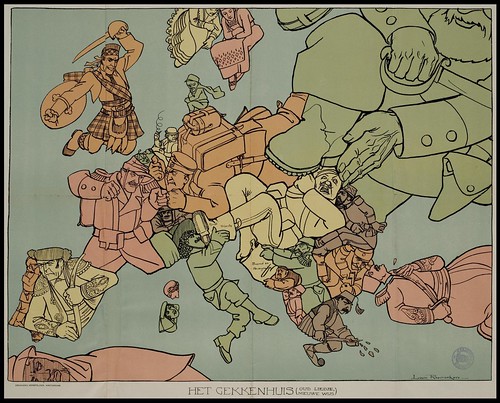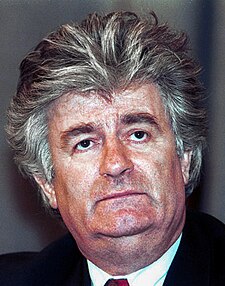 Aleksandr Solzhenitsyn is dead, another of the giants of 20th century literature gone, his works already diminished from handy anti-Soviet conversation pieces for the dinner party set to dusty history source books.
Aleksandr Solzhenitsyn is dead, another of the giants of 20th century literature gone, his works already diminished from handy anti-Soviet conversation pieces for the dinner party set to dusty history source books.
The Gulag Archipelago remains his best-known book, though most people will only have read the expurgated version rather than as three chunky volumes. They may have tinkered with Cancer Ward. But, let’s face it, most people who’ve read any Solzhenitsyn will only have read One Day in the Life of Ivan Denisovich – an easy hundred or so pages of Soviet horror. Quick to read, quick to be forgotten.
While The Gulag Archipelago will be foisted on reluctant history students for decades, if not centuries to come, its catalogue of horrors becomes so vast as to be overwhelming, desensitising. This is why Ivan Denisovich is more familiar – the crimes committed by the likes of Stalin were just too vast to comprehend other than through the stories of individuals. Yes, all those mentioned in The Gulag Archipelago were individuals too, but by their sheer number they become faceless. Statistics. They blur into one, the easier to forget – as Robert Conquest noted in his (400+ page) The Harvest of Sorrow: Soviet Collectivisation and the Terror-famine, “We may perhaps put this in perspective… by saying that in the actions here recorded about twenty human lives were lost for, not every word, but every letter, in this book.”
It’s something Martin Amis tried to get across in his stab at writing about the crimes of the Soviets in Koba the Dread (worth a read even if you don’t like Amis or his hectoring tone), having opened with the above quote from Conquest: “We cannot understand it… It takes a significant effort of imagination…”
The Soviet gulags, like their cousins the Nazi concentration camps, are indeed all but impossible to comprehend. Without Solzhenitsyn, we couldn’t have the first chance of even trying to imagine what they were like, let alone of understanding. And yet what he tried to describe in The Gulag Archipelago still remains impossible to comprehend – the sheer vastness and hostility of Siberia, for one, remains a struggle for me to grasp even now that I’ve endured the long flight gazing down on its featureless whiteness on several trips to Japan.
Meanwhile, his best book, the work that best shows off his literary genius – August 1914 – languishes largely unread, currently up for grabs on Amazon.co.uk for just 1p. Yes, that’s one English penny. It is at once the best book about the First World War I’ve ever read and the real perfect symbol of Solzhenitsyn – vast in size, detailed in its research, beautiful in its language, able somehow to bring to life events impossible to imagine in that first month of the war, yet also marred by early censorship (pick up Lenin in Zurich – also currently going for a penny – for some of the missing bits), more known of than read, and somehow incomplete. For August 1914, all 600+ pages of it (1000+ with the restoration of the missing bits) was but the first in an intended series – The Red Wheel – covering Russia’s road to revolution and its subsequent repression.
Of this series, he completed just four books over a twenty-year period, of which I believe only August 1914 and November 1916 has so far been translated into English. It’s a masterpiece, but a difficult and ultimately disappointing one – because now he is dead and it will never be completed, destined to become, in the memorable phrase of Nina Khrushcheva (writing in The Nation on Solzhenitsyn’s 80th birthday back in 1999),
“little more than a crank’s mausoleum within which his Nobel Prize-worthy talent has been interred.”
And so, thanks in part to the sheer length of time it took him to write them, in part thanks to his unshakable public image as the guy who writes about gulags, these works that Solzhenitsyn himself seemingly hoped to make his true literary legacy languish mostly unread and, in some cases, unpublished outside his native tongue. Where his books were once unread through censorship, they now gather dust through lack of interest – and with his death, Solzhenitsyn himself is doubtless destined to join Ozymandias – a symbol of something great, yet increasingly forgotten.
We cannot comprehend the horrors of the 20th century – not the slow march into death of the Somme, not the cattle-truck convoys to the gas chambers of Belsen, and not the icy nothingness of Siberian exile – but we also cannot forget them. Even if Solzhenitsyn did, in the last decades of his life, become obsolete with the fall of Communism – a symbol of rebellion and independence so powerful that he was quickly moulded by the canny Putin to be wheeled out as a propaganda tool – and even though his works may increasingly be unread these days, he is one of the few twentieth century writers whose works we already know are important enough to be taught as history.
Yet few want to read “important” books. Better, then, to remember Solzhenitsyn the man as something separate from his actual works. The Gulag Archipelago was “important” when it first came out – since the fall of the Soviet Union it is no longer, yet it remains a truly great work of history and of literature. August 1914 was overshadowed by the earlier, “important” works on life under the Soviets when it came out. Now, finally, it can perhaps emerge from the shadows. Solzhenitsyn himself will forever be associated with the Soviet era, but perhaps now we can finally start to read his books not just for their insight into incomprehensible times, but for the beauty of their language, the knife-edge sharpness of their descriptions, and the all-pervading feeling of muffled hope amid hopelessness that is, above all, the true legacy of the twentieth century. That his final masterpiece, the Red Wheel series, will now remain unfinished seems strangely apt for a man who has come to symbolise a period in which all too many lives were ended too soon.
And still, his books remain to remind us of the horrors of war and repression, hopefully to prevent future leaders making the same mistakes, though we all know such lessons are rarely learned:
I met a traveller from an antique land
Who said: Two vast and trunkless legs of stone
Stand in the desert. Near them on the sand,
Half sunk, a shatter’d visage lies, whose frown
And wrinkled lip and sneer of cold command
Tell that its sculptor well those passions read
Which yet survive, stamp’d on these lifeless things,
The hand that mock’d them and the heart that fed.
And on the pedestal these words appear:
“My name is Ozymandias, king of kings:
Look on my works, ye Mighty, and despair!”
Nothing beside remains: round the decay
Of that colossal wreck, boundless and bare,
The lone and level sands stretch far away.
Solzhenitsyn, I hope, would be in agreement:
SPIEGEL: Are you afraid of death?
Solzhenitsyn: No, I am not afraid of death any more. When I was young the early death of my father cast a shadow over me — he died at the age of 27 — and I was afraid to die before all my literary plans came true. But between 30 and 40 years of age my attitude to death became quite calm and balanced. I feel it is a natural, but no means the final, milestone of one’s existence.
SPIEGEL: Anyhow, we wish you many years of creative life.
Solzhenitsyn: No, no. Don’t. It’s enough.



 Hell, it seems to have weathered the storm better than most economies so far – but as long-time readers of this blog will know, I’m the last person to try in-depth economic analysis. Know your limitations, I always say, which is why I rarely cover
Hell, it seems to have weathered the storm better than most economies so far – but as long-time readers of this blog will know, I’m the last person to try in-depth economic analysis. Know your limitations, I always say, which is why I rarely cover  I’ve largely ignored Obama’s
I’ve largely ignored Obama’s  It’s a question
It’s a question  War criminal arrested: cue all sorts of guff from people who should know better about how this proves the Serbian government’s
War criminal arrested: cue all sorts of guff from people who should know better about how this proves the Serbian government’s